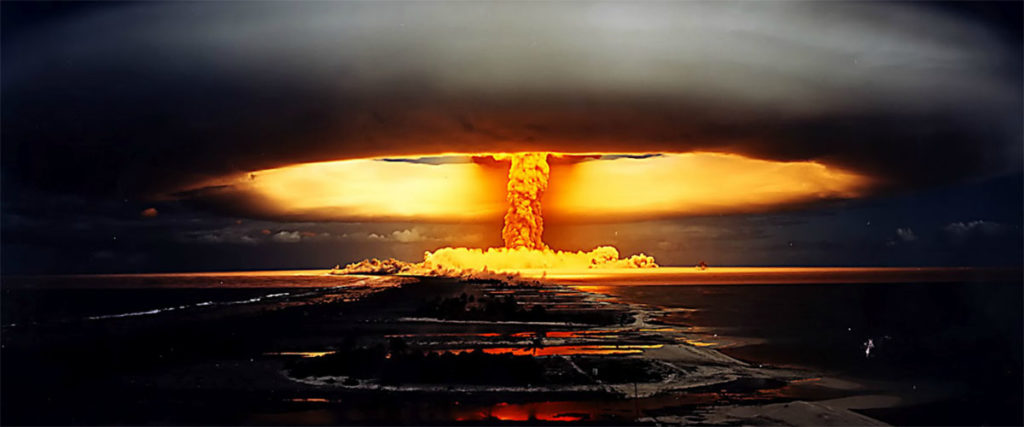International Day Against Nuclear Tests

By Katherine Maloney, Dominican Volunteer
August 29th marked the International Day Against Nuclear Tests. Each year, this day reaffirms the global voluntary moratorium on nuclear testing, considers the possibility for a world without nuclear tests (and, further, without nuclear weapons) and renews the call for the ratification of the Comprehensive Nuclear Test Ban Treaty (CTBT), (https://www.ctbto.org/the-treaty) which was first introduced in 1996. Since that time, almost every UN Member State has approved and ratified this treaty, with the exception of India, North Korea, and Pakistan, who have not signed on; China, Egypt, Iran, Israel, and the United States, who have signed, but have not ratified; North Korea is the only country in violation of the voluntary moratorium on testing.
The day began with a speech from the Permanent Representative of Kazakhstan, His Excellency Kairat Abdrakhmanov, who spoke about the need to ratify the CTBT and to view disarmament as an existential interest common to all humanity. He said, “Harmony is greater than any weapon,” a statement that many Member States echoed in their individual statements. Nearly every country reaffirmed the need for the final eight member states to sign and ratify the treaty, and many of the countries that do not have a nuclear arsenal spoke of how it is in fact possible for a country to be powerful without having nuclear weapons. The Permanent Representative of the Marshall Islands, Her Excellency Amatlan Elizabeth Kabua, gave an impassioned plea for the remaining eight countries to ratify and sign, and to consider those who are still suffering from the devastating impacts of nuclear testing. The Marshall Islands were host to nearly seventy nuclear tests, so the representative knew first-hand how detrimental the radiation is to quality of life, and asked all member states to truly take the experience of the Marshall Islands to heart and consider the human consequences of further nuclear testing.
As a citizen of the United States, I found it extremely disappointing that there was not a single representative from our Permanent Mission present during this event. Since the United States is the only country to have ever used nuclear weapons, I believe that a commitment on our part to non-proliferation would be most powerful and a clear indication of our commitment to peace. Throughout the event, I wondered whether or not the world can ever step back from nuclear weapons. Nine countries are now in possession of a total of 15,000 nuclear weapons. At this rate, will there ever be a way to move away from that darkness and disarm completely? What is even more disappointing than the absence of US participation at this event is that in 2009, President Obama made a commitment to ratify the CTBT during his presidency, but no action has been taken. With only a few months remaining in the Obama presidency, it is most likely that the US will not ratify. Therefore we must begin putting pressure on the candidates to ratify the CTBT during their administration. On September 23, 2016, the United Nations Security Council passed a resolution urging the remaining member states to sign the treaty, but it remains that the United States has not taken any steps to ratify.
At this time, the United States spends nearly $20 billion per year on updating its nuclear arsenal, and has no plans for retiring the weapons within the next ten years. Think of how much that $20 billion could do to help the most vulnerable in our nation. Further, it is ironic that both the United States and Russia helped Kazakhstan dismantle its nuclear arsenal, but have done nothing to move toward dismantling their respective arsenals.
At the end of the day, my thought was that while the CTBT has not been fully ratified, and it does not look like any of the eight remaining countries will budge any time soon, it is clear that the majority of Member States would like to move towards a world without nuclear testing, and, maybe someday, a world without nuclear weapons. Until then, it is up to civil society to continue to put pressure on our governments to end nuclear testing and disarm. There is much work to be done, but I have faith that together, we can create a truly peaceful world.

 Dominican Leadership Conference
Dominican Leadership Conference